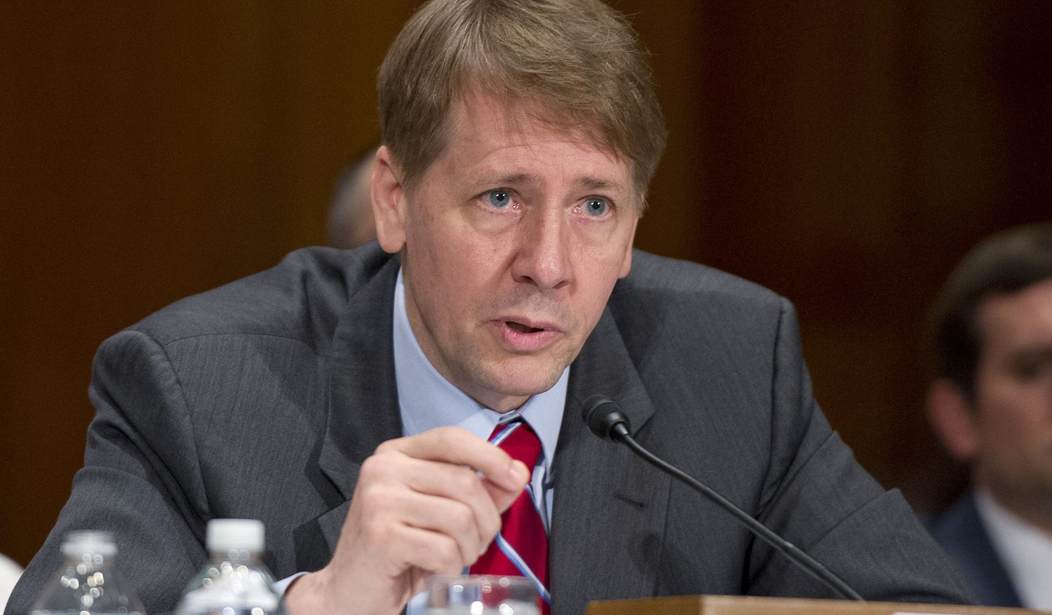WASHINGTON – A new proposed Consumer Financial Protection Bureau (CFPB) rule would stop financial companies and banks from using “arbitration clauses” to block consumers from taking legal action against them, according to CFPB Director Richard Cordray.
“A cherished tenet of our justice system is that no one, no matter how big or how powerful, should escape accountability if they break the law – but right now, many contracts for consumer financial products like bank accounts and credit cards come with a mandatory arbitration clause that makes it virtually impossible for people to sue the company as a group if things go wrong,” Cordray said on a conference call with reporters Monday.
“On paper, these clauses simply say that either party can opt to have disputes resolved by private individuals known as arbitrators rather than by the court system. In practice, companies use these clauses to bar groups of consumers from joining together to seek justice by vindicating their legal rights,” he added.
Cordray emphasized that the proposed rule would not outlaw the use of arbitration altogether.
“For these new contracts, however, these clauses have to say explicitly that they cannot be used to stop consumers from banding together to pursue relief as a group. The rule includes the specific language that financial companies must use,” he said. “By restoring the ability of consumers to file or join group lawsuits, the rule gives companies more incentive to comply with the law. And the deterrent effect of such cases can more broadly influence the business practices of other companies as well.”
Under the proposed rule, companies would be required to “submit their claims, awards, and other information about the arbitration of individual disputes” to the CFPB.
“This will help us better monitor arbitrations to make sure the process is fair for individual consumers. The companies are required to scrub these materials of personal information, and starting in July 2019, we will also post them on our website,” Cordray said. “This will promote transparency and give consumers, providers, and other regulators more insight into how arbitration works.”
Cordray did not answer follow-up questions on the conference.
CFPB Senior Counsel Eric Goldberg specified that the new rule covers “core financial products and services including consumer finance markets” involving lending money, storing money, moving and exchanging money. Goldberg told reporters there is a “substantial cost to complying” with the new rule.
“We believe the benefit to consumers is that when companies are faced with increased class-action liability they will enhance their compliance activity so they are in better compliance with the law,” he said on the conference call. “To the extent that they do not comply with the law and they do not enhance their compliance, they will be susceptible to class-action liability.”
While the CFPB decided not to ban arbitration entirely, Goldberg said the bureau would “continue to evaluate the impacts” of arbitration on consumers.
“We are not prohibiting all consumer finance arbitration,” he said. “We are not leaving those markets unprotected. We are going to continue to monitor how individual arbitration is used in the context of consumer and financial agreements.”
Goldberg said the CFPB discussed the proposal with federal regulators including the Treasury Department but did not say whether or not the White House was receptive to the new rule. According to Goldberg, Treasury Secretary Steve Mnuchin was not consulted about the new rule before the CFPB’s conference call.
Goldberg said the full text of the rule would be available to read in the Federal Register within the next few weeks.









Join the conversation as a VIP Member